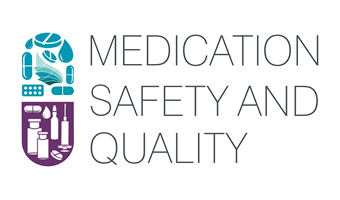Clinical News – May ’16

Clinical Hypnotherapy Research Update – Sleep Issues
Sleep disturbance is increasingly recognised as a contributing factor to a range of mental and physical health issues (1-3). Research has shown sleep quality markedly declines across the human lifespan potentially demonstrating the reduction in synaptic density and the corresponding reduction in cognitive function (4) with significant increases in the prevalence of sleep-onset insomnia found over the 10-year study period (5).
These results were supported by a threefold increase in sleeping pill prescriptions in the past decade (6). Poor sleep hygiene was also common in parent-child dyads (7). Population based studies found 30%-36% of adults reported difficulty in initiating, maintaining or getting back to sleep; and reporting sleep dissatisfaction at 10%-25% (2).
The impact of sleep disturbances on psychological and physical health includes hypertension, an increased risk of diabetes, cognitive impairment and work role impairment (2). Additionally there is evidence which suggests that insomnia is a risk factor for a range of cardiac events (8). Successful treatment of sleep disturbances can have positive effects on a patient’s overall functioning (9, 10). It appears, effective management of insomnia is a physical and mental health issue.
Patients using clinical hypnotherapy reported effectiveness and beneficial outcomes when receiving treatment for sleep issues related to Crohn’s Disease (11), irritable bowel syndrome (12), combat related post-traumatic stress disorder (9), post-menopausal women with sleeplessness or disrupted sleep patterns (13), hot flashes (14), embryo transfer (15), anxiety pre bypass surgery (16), snoring (17), sleep related movement disorders (18) and severe migraine, and chronic fatigue syndrome in conjunction with Cognitive Behavioural Therapy (10). Improvements in sleep and anxiety states are ancillary to the focussed research however improvements in sleep and anxiety states are consistently noted across a wide range of clinical studies.
A recent reflection from the Psychiatric News entitled Perhaps It’s Time to Reconsider Hypnosis suggests it ‘may be time to re-examine clinical hypnotherapy and return it to the rank of a primary treatment’ (19). In patients where medication has not proven successful, clinical hypnotherapy may be useful as an adjunct or an alternative.
CLICK HERE for article references.
Article prepared by Dr. Leon W. Cowen
AdvDipCH, PhD (Clinical Hypnotherapy)
Enquiries: Dr Leon W. Cowen, tel (02) 9415 6500 or email leon@aah.edu.au

Safety Alert – Severe reaction to Ceftriaxone
A cluster of cases involving reactions to ceftriaxone have been reported to the Clinical Excellence Commission. In one case the patient experienced chest pain, the other two cases had severe reactions, with one resulting in death. The patients had no record of any previous allergy/reaction, with one patient having repeat exposure over the previous five years. The reactions occurred within minutes of administration. Though these cases may be the result of hypersensitivity/anaphylactic reactions their occurrence in a cluster has raised concerns. The TGA has been informed and they have not identified any variance in reporting to require action at this point in time.
Please monitor for reactions to IV administration of ceftriaxone and as a reminder report any adverse reactions to the TGA.
Should you require any further information, please contact Ms Fiona Bailey, CEC Medication Safety and Quality Officer by telephone on (02) 9269 5621, or by email on Fiona.Bailey@health.nsw.gov.au or cec-medicationsafety@health.nsw.gov.au.

Reminder: Children 6 months to < 3 years of age FluQuadri Junior is the only quadrivalent vaccine registered for use in this age group.
The Northern Sydney Public Health Unit is advising that there has been an increase in notifications of children < 3 years of age having been provided the Fluarix Tetra vaccine as their annual influenza vaccine. A reminder that this vaccine is only registered for use in people ≥ 3 years of age.
For children 6 months to < 3 years of age FluQuadri Junior is the only quadrivalent vaccine registered for use in this age group.
For further information please refer to the Australian Technical Advisory Group on Immunisation (ATAGI) advice for immunisation providers regarding the administration of seasonal influenza vaccines in 2016.
[contentblock id=1 img=gcb.png]
